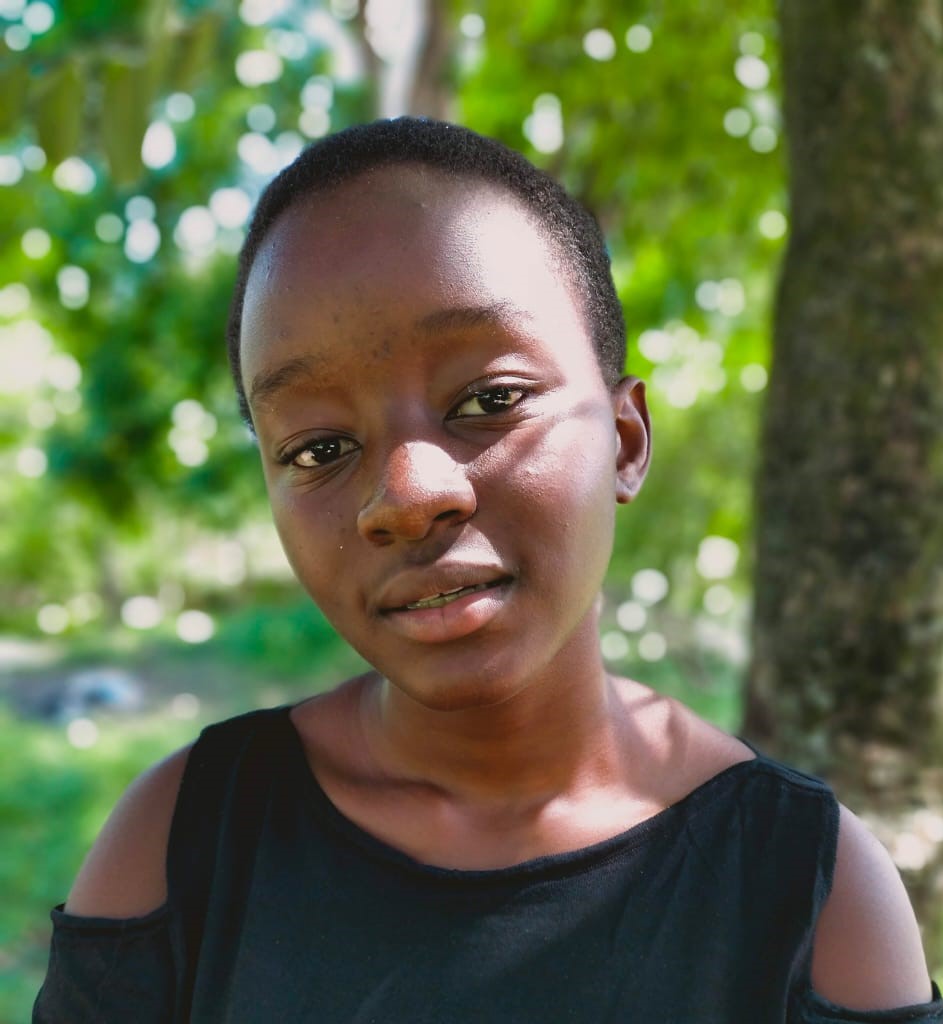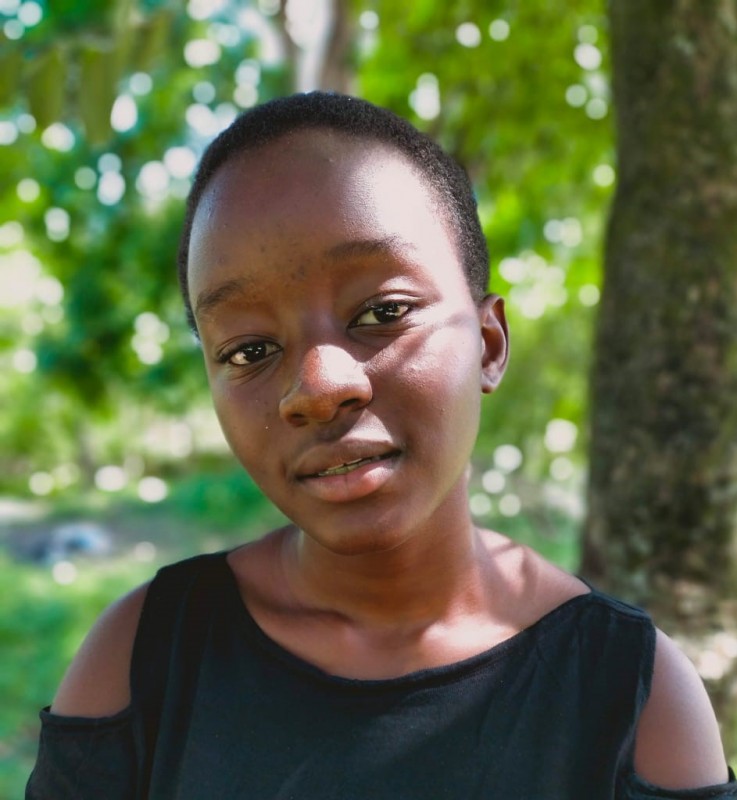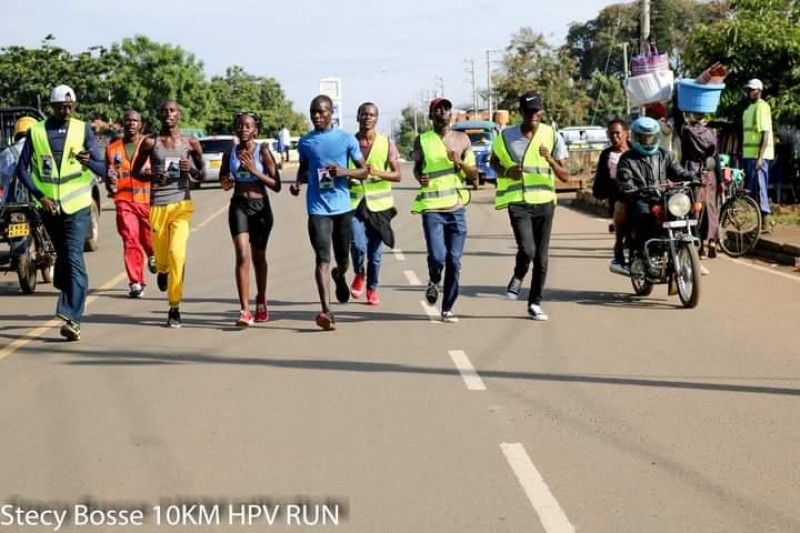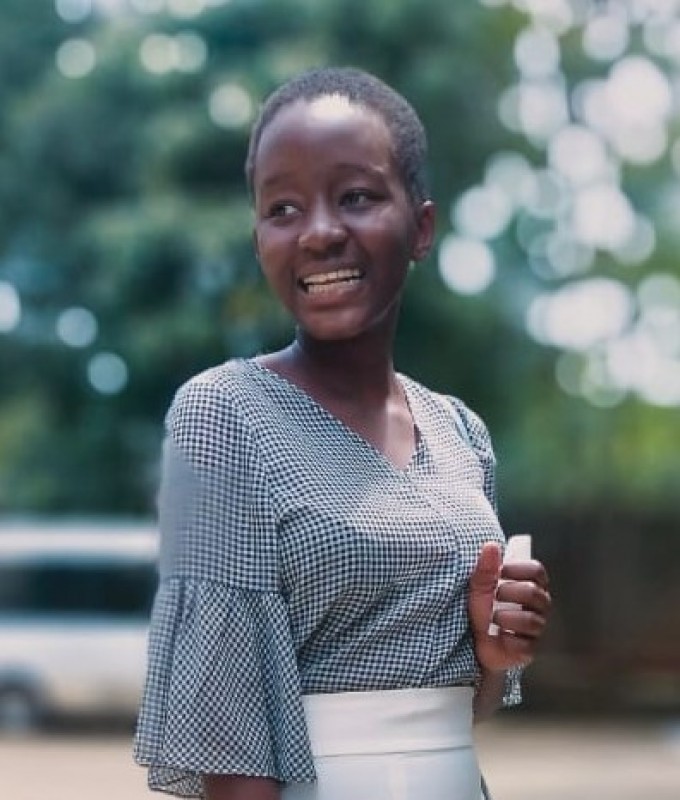Vcan-HPV: Japanese medical students inform young people about HPV
Let’s PreVent CANcer

Sub-Saharan Africa has the highest rate of cervical cancer cases and deaths worldwide, accounting for 20% of cases and 25% of deaths in 20181 . In Kenya, cervical cancer accounted for 12% of all cancer cases in 2020. When IPVS learned of a teenaged girl in Kenya that is passionately advocating for the HPV vaccine, we had to meet this young lady and hear her HPV story.

Q: Stecy, you're a special person. Not too many teenagers put energy into talking about health topics like HPV and promoting the vaccine. Tell us about yourself.
I am nearly 16 years old, a middle child among five brothers and sisters. I live with my family in Kisumu, a big city in the north of Kenya. I will graduate from high school soon. I’m an avid runner, and a youth advocate for the HPV vaccine.
Q: How did you learn about HPV?
From my mother. One day she told me I must go get vaccinated against HPV, and I asked her, ‘what’s that?’ My mother knew about HPV because she works in a health-related field.
Q: What motivates you to raise awareness of HPV and to promote vaccination?
I have several reasons.
During my high school studies, I did an internship at a local hospital. I saw with my own eyes the sad and frightening experiences of women who came into the clinic and were diagnosed with cervical cancer. Many of these women had no knowledge of HPV or the connection of the virus to cervical cancer. I became inspired to try to do something about it. I feel strongly that women should not be suffering from this disease when there are tools to prevent it!
Another reason I am doing this is that in Kenyan society, we are experiencing an increase in teen-age pregnancies and sexual violence. Young girls like me need to be aware of HPV and the risk of getting cervical cancer so that we can at least get vaccinated. I think this is an urgent problem.
Fortunately, my own family has not been touched by cervical cancer. However, I cannot say the same for some of my peers, who have described to me watching their mothers battling against cervical cancer. During my voluntary work at Kisumu Specialist Hospital, I learned that many women that suffer from cervical cancer bleed heavily and need extra-absorbent adult diapers. Unfortunately, some of them can't afford to buy these diapers. I want to help these ladies, so I decided to organize a Father-Daughter Charity Dance to raise money to buy the diapers for these patients. I hope to at least improve their comfort and freedom as they go through their treatment, which can be very tough.
Q: Tell us more about the ‘Dads & Daughters’ Charity Dance for Cervical Cancer in December. What do you want to achieve?
Yes! This will hopefully be a fun way to bring fathers and daughters together, which is something you don’t often see in social settings here. I like the idea of showing how fathers and daughters can talk to each other and have fun together. I am hoping to recruit 50 fathers and daughters for this dance, but there is a lot to organize.
Q: So where does HPV come into this event?
The dance is going to be both a learning and bonding session since it brings both fathers and daughters together to talk. I plan on inviting medical experts - counseling psychologists, oncologists, and gynecologists to explain their work - both mentally, physically, and health-wise. Hopefully everyone will learn about HPV and how to protect their loved ones, and then tell others.

Q: Tell us about your 10k run for HPV vaccination that you started last year. What did you do?
In 2022, I organized a 10k run with about 20 others to raise awareness about HPV among people in the community and in my city. We received some support from several local organizations that donated what they could, and there was a representative from Gavi – the Vaccine Alliance, offering free vaccination against HPV. It was the first time we organized this type of run, reaching about 200 girls with information about HPV. At the event, only 17 girls got vaccinated willingly, but the run gained local media attention and our local government started supplying HPV vaccines in schools.
Q: How much of a problem is it to get young people talking about HPV?
HPV is still a very new and unfamiliar topic in some countries in Africa. In some places there is a backlash due to fear and mis-informed concerns about the safety and effects of injection. From my experience with community work, I've seen that once people understand its importance and what it can do to protect their health or even their friends’ health, then attitudes shift and they get personally invested and passionate about preventing cervical cancer.
Q: How do you think we can get HPV awareness messages out to more young people?
Young people tend to communicate in different ways. Social media is not always the best place to share information simply because there is a chance of scrolling past the message. For me, I decided to raise awareness about HPV through sport, and hoped it caught people’s attention, which in this case it did.
Q: According to a recent modeling study published in Vaccine2, a decade of human papillomavirus (HPV) vaccination in Kenya could avert an estimated 137,000 cancer cases and 97,000 deaths. How does that kind of impact make you feel about what you are doing?
It is very motivating indeed. That’s a lot of women we must save.
That’s not all. Most of the Kenyan women who are battling cervical cancer today are in their ‘40s and ‘50s. Cervical cancer develops over time. Generally speaking, these women were not as sexually active as today’s younger generation. I am worried that if we don’t get enough girls vaccinated against HPV, cervical cancer could become the leading cancer affecting women not only in Kenya but in much of Africa as well.

Q: You’re almost 16 years old, about to graduate from school. What are your plans for the future? Tell us about your dreams.
I’m planning on going to Harvard to study medicine and research. I want to improve my knowledge of HPV and to pursue new studies in this direction.
Good luck with your plans, Stecy. IPVS admires what you are doing and thanks for sharing your HPV story. Keep up the great work!

Let’s PreVent CANcer

Innovative way to raise awareness about cervical cancer in Jordan
